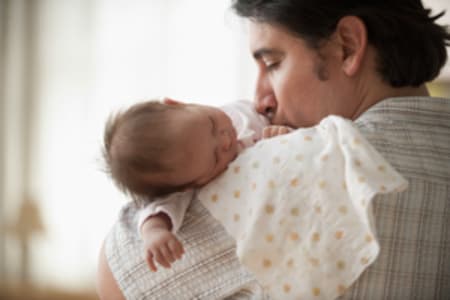Our Health Library information does not replace the advice of a doctor. Please be advised that this information is made available to assist our patients to learn more about their health. Our providers may not see and/or treat all topics found herein.
Burping a Baby
Overview

A baby may be uncomfortable after feedings if he or she has swallowed air during the feeding. Burping helps get rid of air that the baby has swallowed.
- Burp a breastfeeding baby when you switch breasts during feeding.
- Burp a baby who is bottle-feeding after each 1 fl oz (30 mL) to 2 fl oz (60 mL) of fluid.
- Burp the baby after the feeding is finished.
- If the baby has problems with gas or spitting up, you may burp the baby more frequently.
- Most babies burp readily on their own after 2 months of age.
Sometimes formula or breast milk comes up with the air when the baby burps. A clean washcloth, cloth diaper, or bib can help keep you and the baby clean during burping.
To burp a baby:
- Place the baby in an upright position.
Try placing the baby over your shoulder or in a sitting position on your lap. If you place the baby on your lap, place your hand under the chin to support the baby's head.
- Gently rub or pat the baby's back.
The baby will not always burp each time you do this. Wait a few minutes and try again.
Try these tips to help your baby swallow less air during bottle feedings:
- Make sure that the breast milk or formula is not too hot or too cold.
- Hold the bottle so no air gets into the nipple.
- Sit the baby upright in your arms when feeding.
Credits
Current as of: October 6, 2025
Current as of: October 6, 2025







